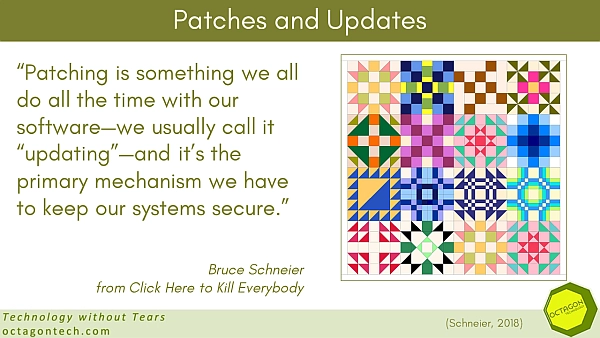Whether you are a shopper or not, I have the blog post for you… For the last few years, as part of our Christmas celebrations, I have been asked to write an article for Octagon Technology exploring the world of “presents for geeks” – which has proven to be one …
Negotiating with cyber criminals is not recommended…
For a start they are criminals, trying to extort you. I have heard business owners comment on ransomware gangs as though they are businesses you need to interact with. Now I know threat actors are shaping themselves to be business like with, help desks, means of paying the ransoms, public …
Continue reading “Negotiating with cyber criminals is not recommended…”
VPNs are an important part of any cyber security plan
The moment you step outside your secure office and want to work – or you need anonymity on the internet – a VPN is your go to solution for privacy and security. I have written an article for the blog on our cyber awareness and online training site CyberAwake looking …
Continue reading “VPNs are an important part of any cyber security plan”
Because It’s Friday – Does your cat love you?
Diana has chosen today’s “Because It’s Friday”. Don’t Panic, it is based on science… Four ways to tell if your cat loves you – based on science (theconversation.com) The photo above is one of her cats – Smudge. Diana has form with cat blogs: 22nd January was Answer Your Cat’s …
Continue reading “Because It’s Friday – Does your cat love you?”
Google Chrome clipboard issues – do you know if one of your team is using an unpatched version?
This is an accidental flaw introduced into the latest version of Chrome, which Google is fixing. Google Chrome bug lets sites write to clipboard without asking (bleepingcomputer.com) The issue with websites being able to write to the system clipboard, is that clipboard often holds sensitive information during a website interaction …






